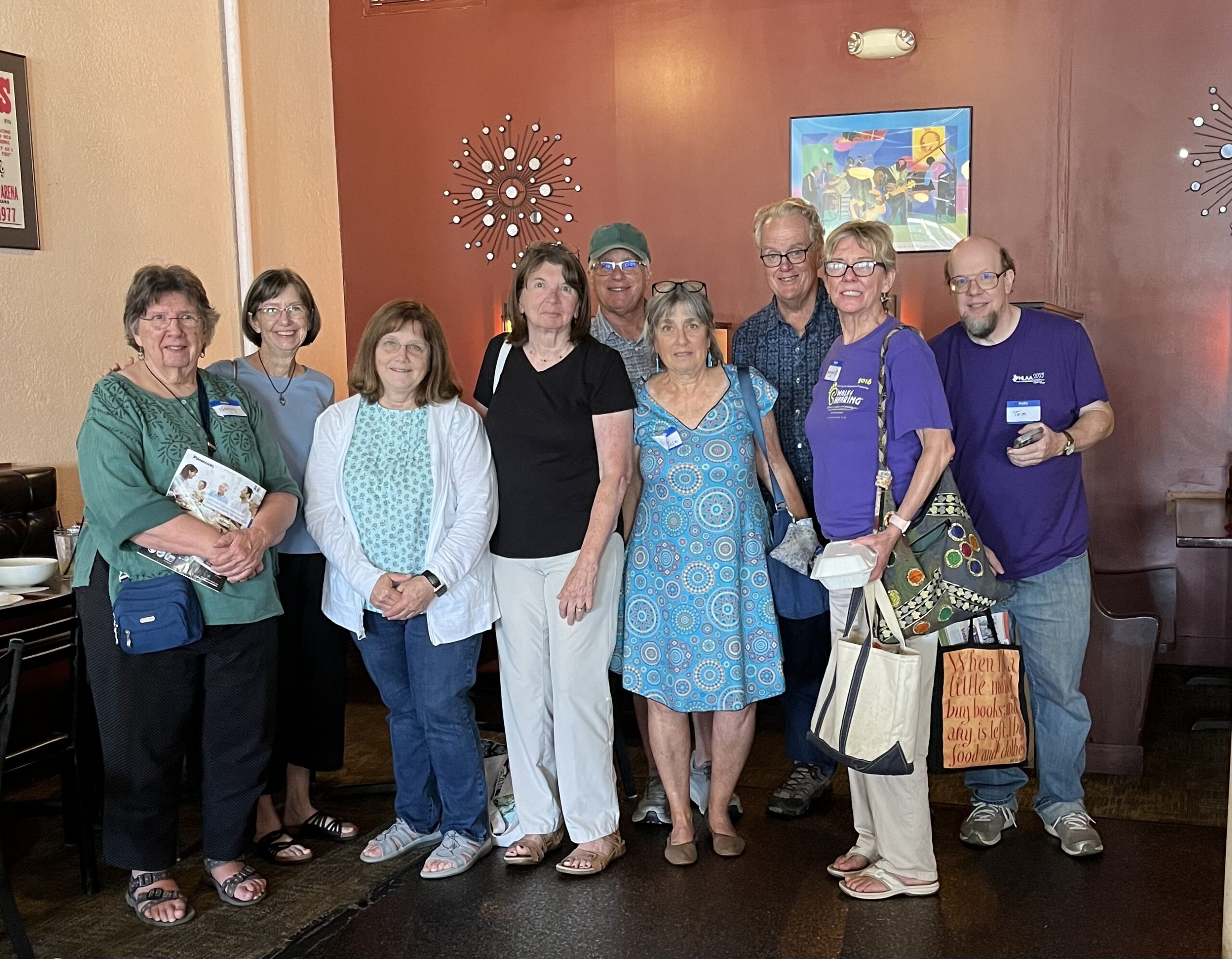
All my friends are important to me, but my hearing loss friends take a special place in my heart. They understand—as no one else can—what it’s like to live with hearing loss. That’s why, when I moved to an island in Maine, I knew I needed to start a Maine hearing loss support group.
I was lucky in that things fell perfectly into place quickly and in 2022, I started the DownEast Chapter of the Hearing Loss Association of America (HLAA). We’ve been meeting on Zoom as it’s a perfect way for folks in a large, sparsely populated state to get together. The bonus is that we’re able to hear terrific speakers from different locations.
For our last meeting, we changed the format. Instead of having a guest speaker, we had an open forum for attendees to ask personal questions and for us, the people with hearing loss, to answer their questions.
The first question was something we could all relate to. Betty was frustrated because when she asks her partner to look at her when he talks, he does for a few minutes but then forgets. She feels his intentions are good but is puzzled as to why he continually forgets. She wonders if it’s some sort of passive aggressive behavior. Whatever the reason, Betty gets annoyed by it and wonders what she should do.
The first suggestion was that Betty should not get irritated at her partner. Chances are that he’s not deliberately trying to be mean. He just forgets and reverts to the way he’s been communicating his whole life. It’s not a personal attack on her and she shouldn’t take it that way.
One member said that when Betty’s partner forgets to look at her while he’s speaking, a good strategy may be to use hand signals—like pulling on her ear to show that she hasn’t understood. This is a simple easy-to-executive strategy that will remind him to use the methods they’ve discussed.
Betty said that she appreciated hearing the group’s insights and that they will help her better manage her emotions and stay calm.
Another question came from Joseph, who asked what he should do when his family gets impatient and annoyed with him when he can’t understand them. In response, he gets annoyed with this—a double whammy.
The group agreed that it’s harder to deal with those we live with because we expect more from our loved ones, than we expect from our casual friends. (This is true for any family unit whether or not there’s a hearing loss!)
We assume they know and will use such preferred strategies: don’t talk from another room, and have only one person to talk at a time. But they forget—and no wonder! It’s so much easier to yell from another room than to walk to the room you’re in. Or to get carried away in a conversation and to talk over somebody else. Haven’t we all done this?
Always using the best communication strategies isn’t easy—even for us, people with hearing loss for whom they are a great benefit. We need to understand that it isn’t easy for our friends and family either.
So, what is the person with hearing loss to do when his family gets impatient with him? We suggested remembering that it’s hard for them to consistently and properly use all the communication strategies. Occasionally reviewing tips with family members can be very effective.
The last question came from Joannie who relies on captions when talking on the phone. Joannie is concerned about the lag time between when she receives the transcription of what the other party has said and when she responds to it. She fears the lag time may make it seem like she’s slow, or even not too bright. How can she deal with the lag time?
The answer for Joannie’s question was unanimous: Tell the recipient up front that you have a hearing loss, that you need the transcription to understand what they’re saying, and that there will be a lag in your response time. That will give them the information needed to understand.
Joannie felt hesitant to tell people up front that she has a hearing loss as she’s scared she will be judged negatively. We told her that she has two choices: 1) Tell people up front that you have a hearing loss and that’s why your response may be a little slower than typical conversation, or 2) not tell the person you’re talking to and let them wonder why your response is slow.
Putting it that way, Joannie was convinced to let the recipient know why she is slow in responding.
After this session we felt closer and hoped to connect further in person. Finding a central place for the state of Maine was challenging but we agreed to meet in Augusta, the capital. This is amazing as some of us will have to drive more than a couple of hours to get there (that’s me). I’m happy to say I’ve finally met my Maine hearing loss people.

